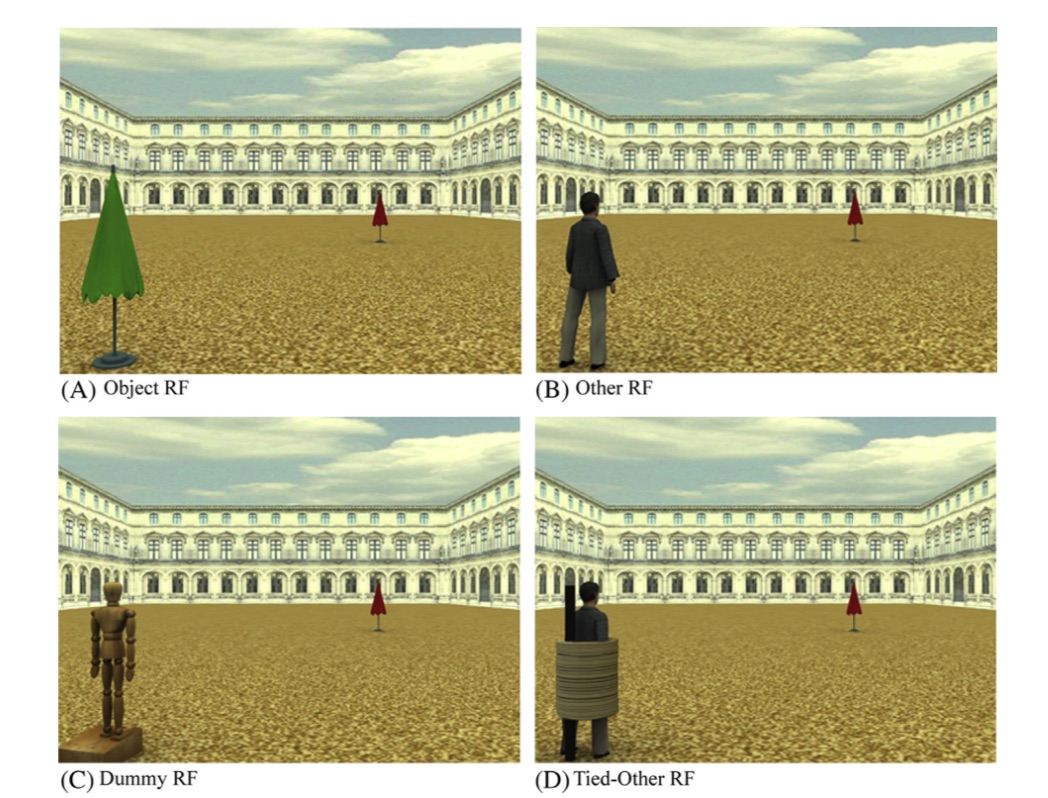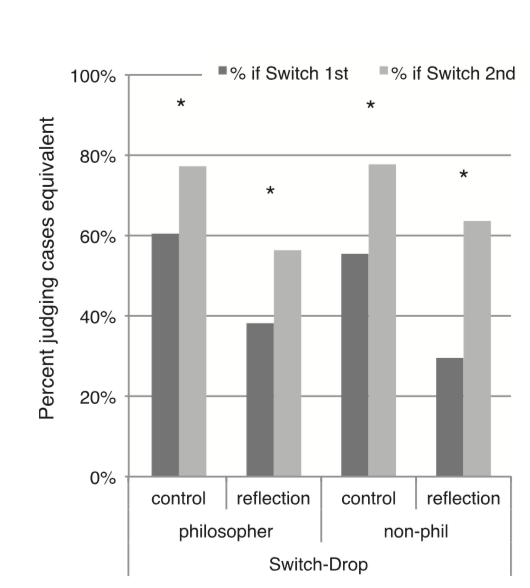Click here and press the right key for the next slide.
(This may not work on mobile or ipad. You can try using chrome or firefox, but even that may fail. Sorry.)
also ...
Press the left key to go backwards (or swipe right)
Press n to toggle whether notes are shown (or add '?notes' to the url before the #)
Press m or double tap to slide thumbnails (menu)
Press ? at any time to show the keyboard shortcuts

Framing Effects: Emotion and Order of Presentation
[email protected]
Recall Thomson’s method
[premise] There is a morally relevant difference between David and Edward.
[premise] There is no morally relevant difference between Edward and Frank.
[premise] ...
How does the reader know?
Not by inference. The premise is noninferentially justified.
‘no moral Intuitions are justified noninferentially’
(Sinnott-Armstrong, 2008a, p. 74)
‘Evidence of framing effects makes it reasonable for informed moral believers to assign a large probability of error to moral intuitions in general and then to apply that probability to a particular moral intuition until they have some special reason to believe that the particular moral intuition is in a different class with a smaller probability of error’
(Sinnott-Armstrong, 2008c, p. 99).
Another, complementary argument: Rini (2013)
Does the evidence of framing effects successfully undermine the view that, as things stand, philosophers’ noninferentially justified moral judgements can yield knowledge?

Fini et al. (2015, p. figure 1)
Does the evidence of framing effects successfully undermine the view that, as things stand, philosophers’ noninferentially justified moral judgements can yield knowledge?

Schwitzgebel & Cushman, 2015 figure 2 (part)
order-of-presentation effects (Schwitzgebel & Cushman, 2015)
additional irrelevant options (Wiegmann et al., 2020)
‘Asian disease’ (Prospect) framing (Wiegmann & Horvath, 2020)
ethical
judgements
spatial
judgements
financial
judgements
...
In certain other cases
‘there is no underlying preference that is masked or distorted by the frame. Our preferences are about framed problems, and our moral intuitions are about descriptions, not about substance’
(Daniel Kahneman, 2013).
‘expert ethicists have a genuine advantage over laypeople with respect to some well-known biases’
(Wiegmann & Horvath, 2020)
‘no moral Intuitions are justified noninferentially’
(Sinnott-Armstrong, 2008a, p. 74)
‘Evidence of framing effects makes it reasonable for informed moral believers to assign a large probability of error to moral intuitions in general and then to apply that probability to a particular moral intuition until they have some special reason to believe that the particular moral intuition is in a different class with a smaller probability of error’
(Sinnott-Armstrong, 2008c, p. 99).
Another, complementary argument: Rini (2013)
[premise] There is a morally relevant difference between David and Edward.
[premise] There is no morally relevant difference between Edward and Frank.
We sometimes judge that scenarios are morally different even when they are not.
Therefore we should withhold asset from Thomson’s premises.
None of the framing effects yet discovered explain why we make these particular patterns of judgement.
Therefore a noninferentially justified judgement can be knowledge.

a deeper understanding